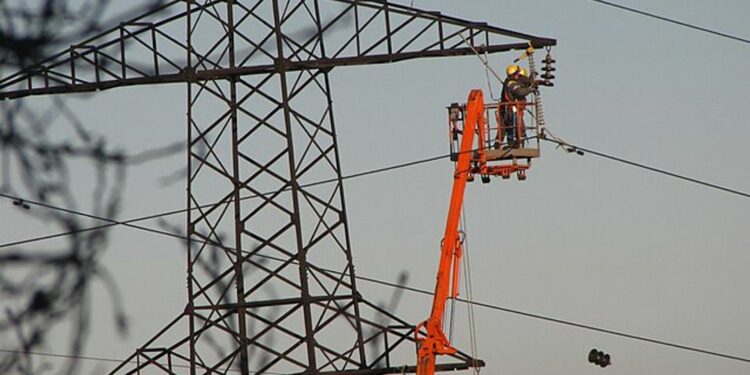The prospect of ending the contract allowing Russian gas transit through Ukraine on January 1, 2025, has been at the heart of a diplomatic crisis for the past two weeks. On one side is Kyiv, which announced months ago its intention not to renew the contract, and on the other is Slovakia, under Prime Minister Robert Fico, which has been heavily reliant on Russian gas.
Between a visit to Moscow, threats to cease all electricity exports to Ukraine—despite the country already dealing with regular outages caused by Russian strikes on energy infrastructure—and a letter sent to European Commission President Ursula von der Leyen requesting EU intervention in the dispute, the Slovak prime minister is pulling out all the stops to prevent a historic “disconnection.”
Moscow, for its part, continued to exert pressure. On December 28, Russian gas giant Gazprom announced that it plans to cease all gas deliveries to Moldova on January 1, threatening to plunge the separatist region of Transnistria, which is entirely dependent on Russian gas, into darkness.
An end to transit through Ukraine planned for years
In Kyiv, the end of transit has been anticipated and prepared for years. Ukrainian authorities have long seen Moscow attempting to circumvent this inconvenient route by building pipelines bypassing Ukraine: Nord Stream 1 to Germany in 2012, TurkStream via Turkey in 2020, and Nord Stream 2 on the eve of the invasion.
Kyiv was also increasingly troubled by the influence of this transit revenue, which had become a symbol of Moscow’s ability to influence, pressure, and corrupt Ukrainian political life. “All our problems stem from Russian gas,” said Serhiy Makohon, director of Ukraine’s gas pipeline management company from 2019 to 2022.
“Remember the Kharkiv agreements (in 2010, Kyiv agreed to extend Russia’s lease on the Sevastopol naval base in exchange for preferential gas tariffs). It’s a source of political corruption, not just in Ukraine—look at Slovakia or Hungary,” he added. “We don’t want to renew the contract; we don’t want them to continue making money here,” Ukrainian President Volodymyr Zelenskyy declared in July.
War in Ukraine had not interrupted deliveries
The potential end of the transit also highlighted the remarkable fact that it has survived until now: neither Moscow’s annexation of Crimea in 2014, the Russian invasion of 2022, nor even the capture of the Russian town of Sudzha, the only entry point for Russian gas into Ukraine, by the Ukrainian army in August 2024, had interrupted it. “Gazprom is experiencing financial losses for the first time in 25 years, so it’s very important for them to continue this transit,” said Andrian Prokip, a Ukrainian energy expert.
U.S. sanctions against Nord Stream 2 and the sabotage of Russian pipelines in the Baltic Sea in September 2022 also contributed to the continued need for transit through Ukraine. But a decade of conflict has taken its toll: in 2021, some 42 billion cubic meters of Russian gas passed through Ukrainian pipelines, far from the 88 billion cubic meters in 2013. Last year, the figure dropped to 15 billion cubic meters.
The hypothetical transit through Azerbaijan
While Europe has been working for years to reduce its dependence on Russian gas, the ongoing reliance of a handful of countries—primarily Hungary and Slovakia—has led to a frantic search for solutions in recent months and the emergence of a fragile idea: the European Union and Ukraine could agree to transit gas through Ukraine from Azerbaijan.
This hypothesis is absurd, said Mykhailo Honchar, a Ukrainian gas specialist: “It will be Russian gas. Azerbaijan does not produce enough gas to make this viable, not to mention there is no direct pipeline between Azerbaijan and Ukraine.”
Though this plan has not been confirmed (neither the Ukrainian company Naftogaz nor Ukraine’s energy ministry responded to La Croix’s inquiries on the matter), the possibility is being taken seriously. On December 1, European Energy Commissioner Kadri Simson criticized a potential agreement as “completely unnecessary,” arguing it would merely serve to “relabel” Russian gas as Azerbaijani.
While Russian gas transit is expected to cease on January 1, the story may not yet be entirely over.
Source link : http://www.bing.com/news/apiclick.aspx?ref=FexRss&aid=&tid=6773c4ece5914051ae28c98c5f66dbb3&url=https%3A%2F%2Finternational.la-croix.com%2Fworld%2Fwar-in-ukraine-the-end-of-russian-gas-transit-through-ukraine-puts-europe-under-strain&c=15740673044849180356&mkt=de-de
Author :
Publish date : 2024-12-30 20:00:00
Copyright for syndicated content belongs to the linked Source.


